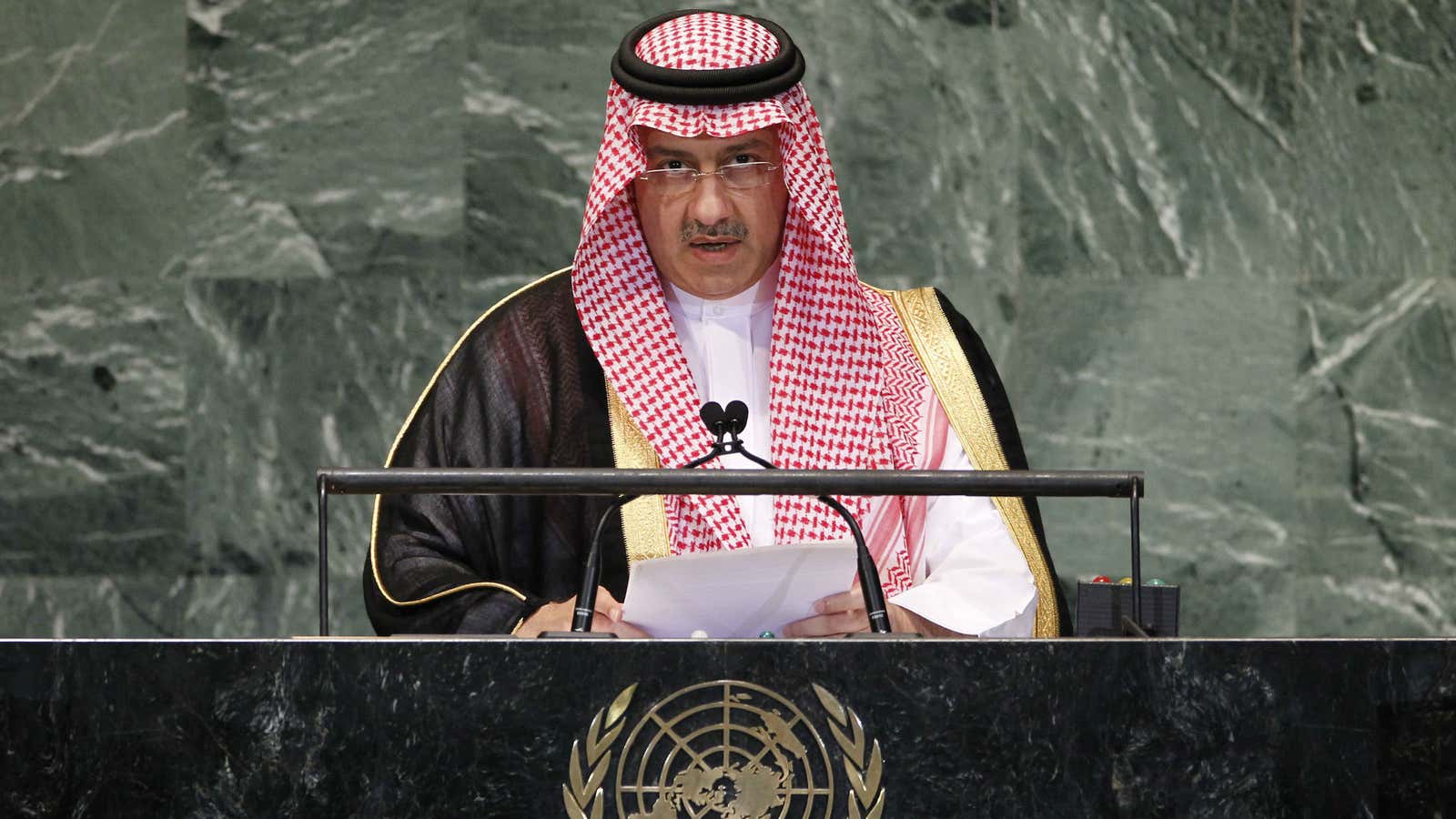Saudi Arabia was elected to the UN Security Council yesterday, only to apparently turn down its seat today. A UN spokesperson told Quartz that to the best of its knowledge, no other country has turned down or rescinded a Security Council seat. (The closest scenario was when the Soviet Union boycotted the council in 1950 over the UN’s recognition of Taiwan.)
What makes the rejection interesting, or “bewildering” in the words of Russia’s foreign ministry, is that this was the first time the country had ever applied for one of the ten rotating two-year seats on the council, which decides on the most urgent international issues facing the UN. In the past the kingdom has preferred to stay behind the scenes and focus on back-channel negotiations. Competition for one of the seats is usually fierce. So although Saudi Arabia ran unopposed for its seat, the country would have been working for years on its application and lobbying other members of the UN General Assembly, who vote for the Council, according to observers.
So why the about-face? The official reason is that the Saudis are unhappy with the council’s policy on the Middle East and its weak action against Bashar al-Assad in Syria especially. Rejecting a seat could be the most public way for them register their displeasure, in particular with US policy, without the risky step of jeopardizing diplomatic ties with America. Earlier this month, the country’s foreign minister canceled a speech at the UN in a sign of frustration over inaction in the region. This week’s meetings between the US and Iran, Saudi Arabia’s chief rival in the region, may have convinced top Riyadh officials that something more dramatic had to be done.
Erik Voeten, a geopolitics professor at Georgetown University, points out an alternative view: Being on the security council is a risky business because it obliges countries to take a stand on every major international issue that crops up. Maybe, Voeten suggests, rather than wanting to snub the US over Syria, the Saudis worried that they ran too great a risk of upsetting the US over anything else that might crop up in the next two years.
Whatever the reason, while the move has certainly gotten attention, it won’t change much. Even when the Soviet Union, then one of the five permanent members, boycotted the council, it continued to meet, and voted for a resolution that eventually set the stage for Western intervention in the Korean War. The non-permanent members, unlike the permanent ones, lack veto power. So whether by presence or absence, Saudi Arabia’s role on the council will be largely symbolic.
